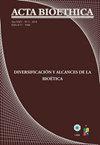Protection of medical data within the scope of the Law on Protection of Personal Data
IF 0.3
4区 哲学
引用次数: 1
Abstract
As a result of non-stop developing technology, each corner of our lives become more and more reachable. Although privacy has always been very valuable and modern laws has taken steps to provide security of privacy, nowadays it takes only some seconds to reach the surname, workplace, the address etc of a person; even of a family. Although some may believe sharing information is harmless, from spam emails to obsessive stalking there is not an actual limit of what can be done with wrongly accessed personal data.When having frequent commercial calls from firms or missing your important mails because of the commercials that fill your mail box, we experience that even the slightest privacy violation can be very annoying. However some personal data are exactly what people face discrimination of. In todays world it is common to see people are discriminated due to their religion, sexuality, politic views, past convictions and even due to their health conditions. The results of discriminations may vary from not being included to social life to mobbing at work; in some extreme cases it may even put the persons life at risk by making them a target. Considering the possible risks and the easiness to reach, as technology has been developing constantly, the need for data protection is more visible than ever. This article aims to explain the protection of medical data in Turkish Legislation by focusing on Law on Protection of Personal Data.在《个人数据保护法》范围内保护医疗数据
由于科技的不断发展,我们生活的每个角落变得越来越触手可及。虽然隐私一直是非常宝贵的,现代法律已经采取措施提供隐私的安全,现在只需要几秒钟就可以到达一个人的姓氏,工作地点,地址等;甚至是一个家庭。虽然有些人可能认为共享信息是无害的,但从垃圾邮件到强迫性跟踪,对错误访问的个人数据所能做的事情并没有实际限制。当你经常接到公司打来的商业电话,或者因为邮箱里塞满了商业广告而错过了重要的邮件时,我们会觉得即使是最轻微的隐私侵犯也会让人非常恼火。然而,有些个人数据恰恰是人们所面临的歧视。在当今世界,人们因宗教、性取向、政治观点、过去的信念甚至健康状况而受到歧视是很常见的。歧视的结果可能各不相同,从不被纳入社会生活到在工作中受到围攻;在某些极端情况下,它甚至可能使人的生命处于危险之中,使他们成为目标。考虑到可能的风险和容易达到的程度,随着技术的不断发展,对数据保护的需求比以往任何时候都更加明显。本文旨在通过重点介绍《个人数据保护法》,解释土耳其立法中对医疗数据的保护。
本文章由计算机程序翻译,如有差异,请以英文原文为准。
求助全文
约1分钟内获得全文
求助全文
来源期刊

Acta Bioethica
医学-卫生政策
CiteScore
0.60
自引率
0.00%
发文量
22
审稿时长
1 months
期刊介绍:
Acta Bioethica is a biannual publication by the Interdisciplinary Center for Studies in Bioethics of the University of Chile (ISSN 0717-5906, press edition, y 1726-569-X, electronic edition), which publishes in three languages: Spanish, English and Portuguese.
Indexed in Science Citation Index (SCI), Scopus, Lilacs, SciELO y Latindex, and in database from several Institutions; it constitutes a pluralistic source of perspectives and an important tribune which accepts the contributions of authors compromised with the interdisciplinary study of ethical determinants and consequences of techno scientific research.
 求助内容:
求助内容: 应助结果提醒方式:
应助结果提醒方式:


